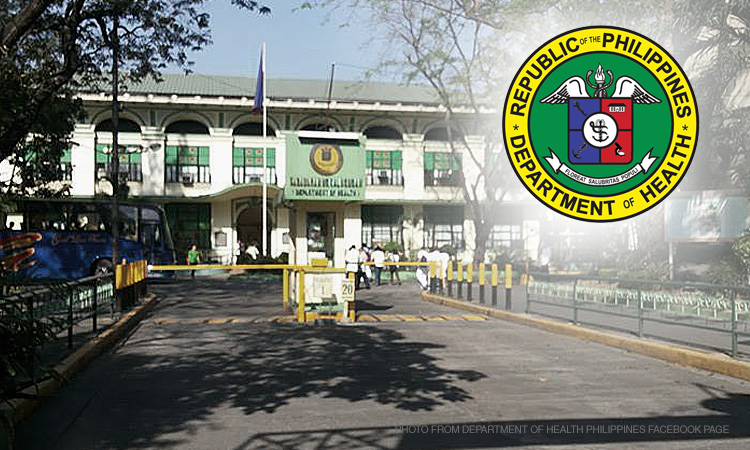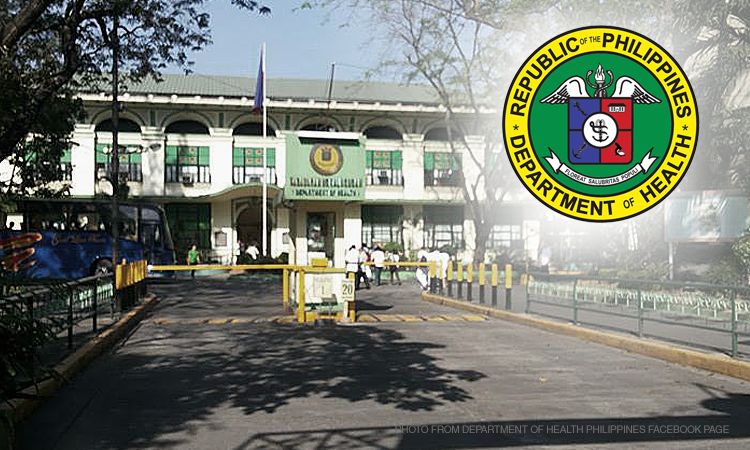
THE Commission on Audit (COA) on Wednesday flagged various deficiencies in the handling of P67.323-billion Covid-19 funds by the Department of Health, with state auditors saying such affected the department’s response to the pandemic.
“These deficiencies contributed to the challenges encountered and missed opportunities by the DOH during the time of state of calamity/national emergency, and casted doubts on the regularity of related transactions,” the COA said in its annual audit report on DOH.
The COA audit earlier revealed initial deficiencies involving public funds amounting to P66.287 billion, about which it notified Health Secretary Francisco T. Duque III through a consolidated management letter (CML) last May 4.
State auditors, however, further disclosed additional deficiencies involving Covid-19 funds amounting to P1.036 billion through a continuous audit.
“Most importantly, the billions of pesos in the coffers of the DOH that have remained not obligated and disbursed as at year-end is counter-beneficial to the Department’s continuing efforts towards controlling the spread of Covid-19 through provision of quality health services,” their report said.
Auditors added that the over P67 billion funds that “remained idle” at the end of 2020 did not translate into “much-needed health supplies, equipment and services” that could have benefited both health workers and the public during the pandemic.
Some of the deficiencies observed by government auditors include the P11.89-billion unobligated funds as of end-2020 which were “aimed at strengthening” the DOH’s capacity to address Covid-19 pandemic and further “buttressing the health system.”
This condition, said the report, “affects the efficient utilization of Covid-19 funds vis-à-vis the agency’s implementation capabilities and its response to the urgent healthcare needs during the time of the state of calamity/national emergency.”
State auditors observed that P5.038 billion worth of procurement by the DOH had “procedural deficiencies” and lacked documents that “deprived the government of the most disadvantageous prices and cast doubt on the regularity in the payment of transactions.”
No MOA
The audit report also revealed that P42.412 billion worth of Covid-19 funds were transferred to procurement or implementing partner-agencies without required memorandum of agreement and other relevant supporting documents. State auditors noted that this posed questions on the regularity of the transactions.
The state auditors also flagged the non-payment of financial assistance claims by intended beneficiaries amounting to P4.885 billion by year-end “due to the delayed downloading of cash allocations through sub-allotment advice.” Due to this, the intention of the financial assistance “to cushion the impact of Covid-19 disease to both the private and public health workers was not attained,” according to the report.
COA asked Duque to implement its recommendations and asked him to submit a status report on actions taken on the audit recommendations.
First, auditors recommended that Duque remind the heads of various operating units “to act with urgency and efficiency in the utilization of Covid-19 funds.”
Duque was urged to direct concerned officials “to immediately address the challenges and roadblocks currently impeding the efficient use of Covid-19 funds and come up with a proper courses of action.”
Duque was also asked to instruct DOH’s administration and financial management team as well as program directors “to closely coordinate and conduct regular/period assessment” on the use of Covid-19 funds to “prevent delays in downloading of funds and project implementation.”
“Order the concern program directors to extend guidance and assistance to the operating units as to the proper implementation of programs and utilization of funds,” the annual report read.
No mismanagement–DOH
Health Secretary Francisco T. Duque III denied that there was corruption involved in the P67.3-billion Covid funds flagged by COA.
“The P67.3 billion is accounted for. Wala pong kinurakot, inilaan natin ang mga pondong ito para sa ating mga kababayan [There was no corruption here, we allotted the funds for our countrymen]. The flagged issues are being addressed by the DOH. Rest assured, that the funds allotted to the DOH are all spent for the procurement of test kits, PPEs [personal protective equipment], payment of health-care workers’ benefits, salaries of HRH [Human Resource for Health] among others,” Duque said in a statement to media late Wednesday afternoon.
Moreover, he said, with the enactment of RA 11519 extending the availability of appropriations under Bayanihan II, the Department was still able to utilize the unobligated balance for this year.
He stressed though that the DOH acknowledges the findings concerning these funds, and is currently addressing the compliance issues and deficiencies.
The DOH said it has always been transparent and cooperative with yearly auditing efforts within the government. Moreover, the DOH has always complied with COA recommendations.
“Bukas po ang aming tanggapan at handa po kaming ipakita sa ating mga kababayan na tama ang paggastos ng kanilang mga taxes [Our office is open and ready to show the people where their taxes were spent]. We take our COA findings very seriously and have been working to further improve our processes and controls so that we can serve the public most effectively especially during this pandemic,” said Duque.
In response to COA findings, the DOH said that the P67,323,186,570.57 public funds to combat Covid -19 “are compliance issues, procedural and documentary deficiencies” which are currently being addressed by the agency.”
After the COA noted “various deficiencies” on the Covid response funds, Duque, when sought for his reaction earlier, told the BusinessMirror that he will provide the “detailed” report as soon as the internal audit office of DOH gives him the copy.
However, in an initial report Duque provided it stated: “In year 2020, the DOH have exerted efforts in order to effectively implement provisions of both Bayanihan I and II more particularly those health responses in this time of state of calamity /national emergency amidst varying challenges.”

